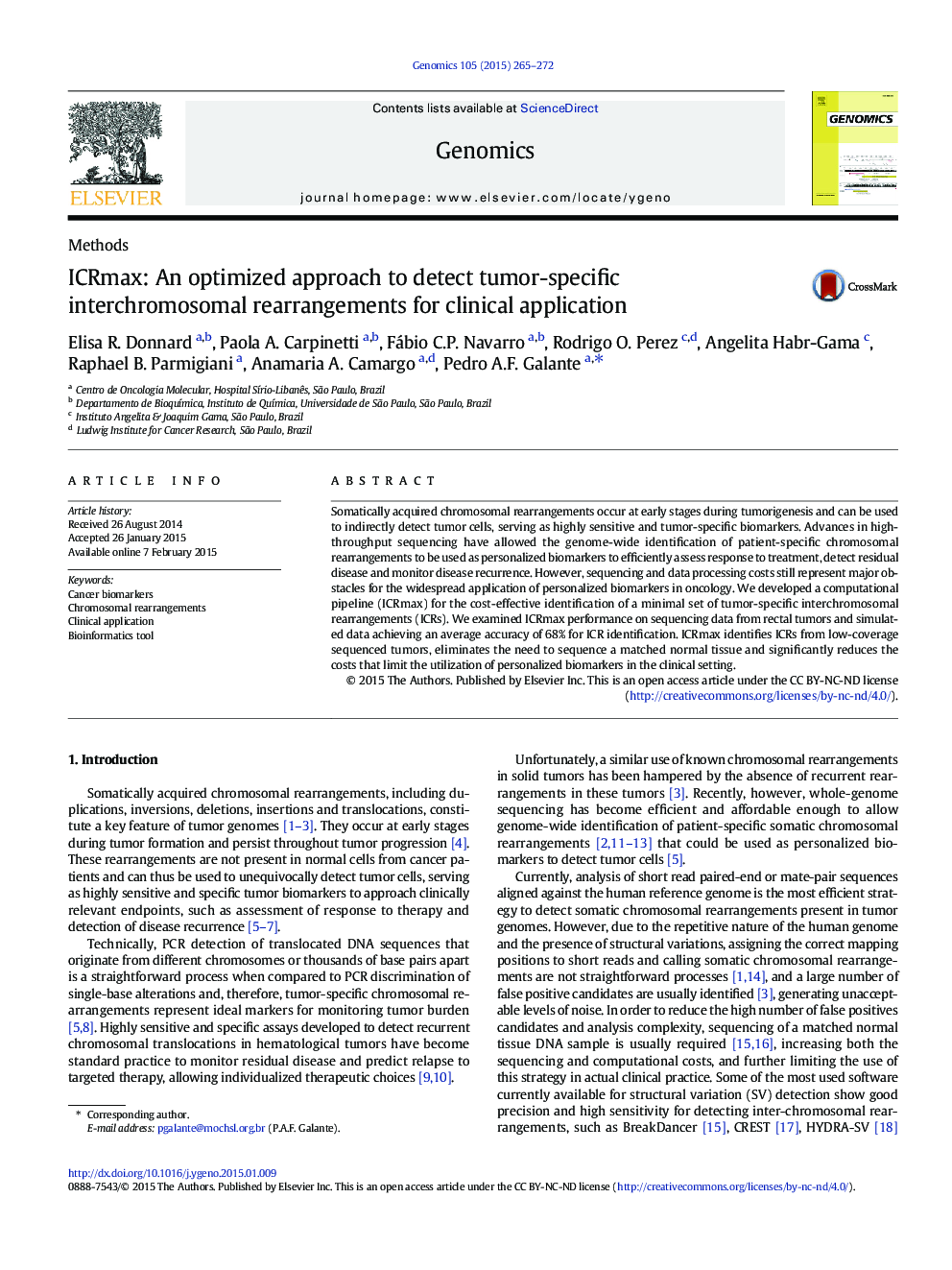| Article ID | Journal | Published Year | Pages | File Type |
|---|---|---|---|---|
| 5907842 | Genomics | 2015 | 8 Pages |
Abstract
Somatically acquired chromosomal rearrangements occur at early stages during tumorigenesis and can be used to indirectly detect tumor cells, serving as highly sensitive and tumor-specific biomarkers. Advances in high-throughput sequencing have allowed the genome-wide identification of patient-specific chromosomal rearrangements to be used as personalized biomarkers to efficiently assess response to treatment, detect residual disease and monitor disease recurrence. However, sequencing and data processing costs still represent major obstacles for the widespread application of personalized biomarkers in oncology. We developed a computational pipeline (ICRmax) for the cost-effective identification of a minimal set of tumor-specific interchromosomal rearrangements (ICRs). We examined ICRmax performance on sequencing data from rectal tumors and simulated data achieving an average accuracy of 68% for ICR identification. ICRmax identifies ICRs from low-coverage sequenced tumors, eliminates the need to sequence a matched normal tissue and significantly reduces the costs that limit the utilization of personalized biomarkers in the clinical setting.
Related Topics
Life Sciences
Biochemistry, Genetics and Molecular Biology
Genetics
Authors
Elisa R. Donnard, Paola A. Carpinetti, Fábio C.P. Navarro, Rodrigo O. Perez, Angelita Habr-Gama, Raphael B. Parmigiani, Anamaria A. Camargo, Pedro A.F. Galante,
